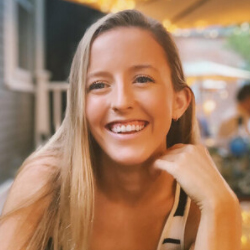
The U.K.’s Advertising Standards Authority has said four lab-grown diamond sellers—Sky Mining (aka Skydiamond), Stephen Webster, Lark & Berry, and Idyl—need to change their advertising to better communicate the nature of their products.
The Natural Diamond Council (NDC) filed a complaint against the four companies with the marketing watchdog last year.
While the NDC put information about all four cases on its site, the Advertising Standards Authority (ASA) posted only its ruling on Skydiamond.
The NDC had complained that Sky Mining’s use of certain terminology—including “Skydiamonds,” “real diamonds,” “diamonds made directly from the sky,” and the word “diamond” without a modifier—could mislead consumers, who might mistake its gemstones for natural ones.
The diamond group asserted that Skydiamond should stick to the U.K. National Association of Jewellers’ recommended terms for nonnatural stones: “synthetic,” “laboratory-grown,” and “laboratory-created.”
In its response, which was included in the ASA ruling, Sky Mining said that since it sources carbon from the atmosphere and hydrogen from rainwater, its products shouldn’t be lumped in with standard synthetics.
“Of the 23 process steps set out in the patent, only one was shared with conventional lab-grown diamond production processes, namely the CVD [chemical vapor deposition] step,” the company stated. “This would therefore make the qualifier ‘laboratory-grown’ or ‘laboratory-created’ potentially misleading.”
Sky Mining claimed the suggested language was limiting: “If single-word qualifiers were to be used, then ‘made’ or ‘manufactured’ were the clearest and least ambiguous.”
It also defended a reference to “a perfectly formed real diamond” in its website’s FAQ. The company contended that lab-grown diamonds are actual diamonds and that the U.S. Federal Trade Commission (FTC) has ruled that “a diamond is a diamond.” (The last comment is up for dispute; the FTC never used that phrase, though it did remove the word “natural” from its definition of diamond.)
Furthermore, Sky Mining said that contested phrases like “mined from the sky” or “world’s rarest” were “obvious exaggerations or puffery, especially in the context of the ads and/or the qualifying information. They would not be taken literally by an average consumer and did not materially mislead.”
Finally, it noted that its site contained extensive information about its process, including on the FAQ page.
The ASA acknowledged Skydiamond’s site did have such info, but said that was not enough.
“None of its ads included an explicit qualification that Skydiamonds were synthetic, laboratory-created, or similar,” it said. “Consumers could go through the entire process of buying a Skydiamond, from homepage to completion of the purchase, without any explicit mention that the diamond was synthetic.”
The ASA concluded that Skydiamond must change its marketing and “clearly and prominently” include the relevant modifiers.
Following the ruling, Skydiamond founder Dale Vince, a well-known British “green” industrialist, pledged to appeal.
“Our website and all of our marketing, indeed our very name, make clear that our diamonds come from the sky—we make them or mine them from the sky,” he said in an emailed statement. “The complaint is not based on actual confusion on the part of customer, it comes from the trade body for diamond mining companies. It is an attempt to use the ASA for anticompetitive purposes and is utterly baseless.”
ASA spokesperson Toby King tells JCK, “The Sky Mining Company has 21 days from the date on our letter of notification of our final decision to ask our independent reviewer to analyze the case. The reviewer will then determine whether they think we need to look again at the ruling, or if it stands. If the former, our council will once more analyze the evidence and come to a conclusion.”
King says the ASA resolved its cases against Lark & Berry and Idyl “informally” and shared its findings with Stephen Webster, which has done collaborations with Sky Mining. (Webster’s company did not return a request for comment, but Sky Mining said the case against Webster was “dropped.”)
According to the NDC, Lark & Berry was found to have breached the ASA’s code by using terms like “cultured diamond” as well as the word diamond unqualified.
Lark & Berry founder and CEO Laura Chavez tells JCK by email: “We’ve always made it a point to clarify that our diamonds are never mined. However, there was a request to add the word ‘lab’ to make this even clearer. We’ve complied, as it really doesn’t affect us. Given the shift in customer preference towards lab-grown diamonds, if anything, this change is a positive. Now, when they search for ‘lab diamonds,’ we’re more likely to appear in their search results, which is beneficial for our search engine optimization.’”
Idyl, based in Belgium, was cited for calling its products “diamond sparkle,” “fine diamond jewelry,” “sustainable diamonds,” and “diamond of the future” without noting their non-natural origin. It has agreed to change its marketing. It did not respond to JCK‘s request for comment.
Natural Diamond Council CEO David Kellie said in a statement that his group “is committed to protecting consumers against misleading marketing.”
In the U.S., the NDC has previously filed product description-related complaints against Agape Diamonds and Diamond Foundry with BBB National Programs’ National Advertising Division.
(Photo: Getty Images)
- Subscribe to the JCK News Daily
- Subscribe to the JCK Special Report
- Follow JCK on Instagram: @jckmagazine
- Follow JCK on X: @jckmagazine
- Follow JCK on Facebook: @jckmagazine







